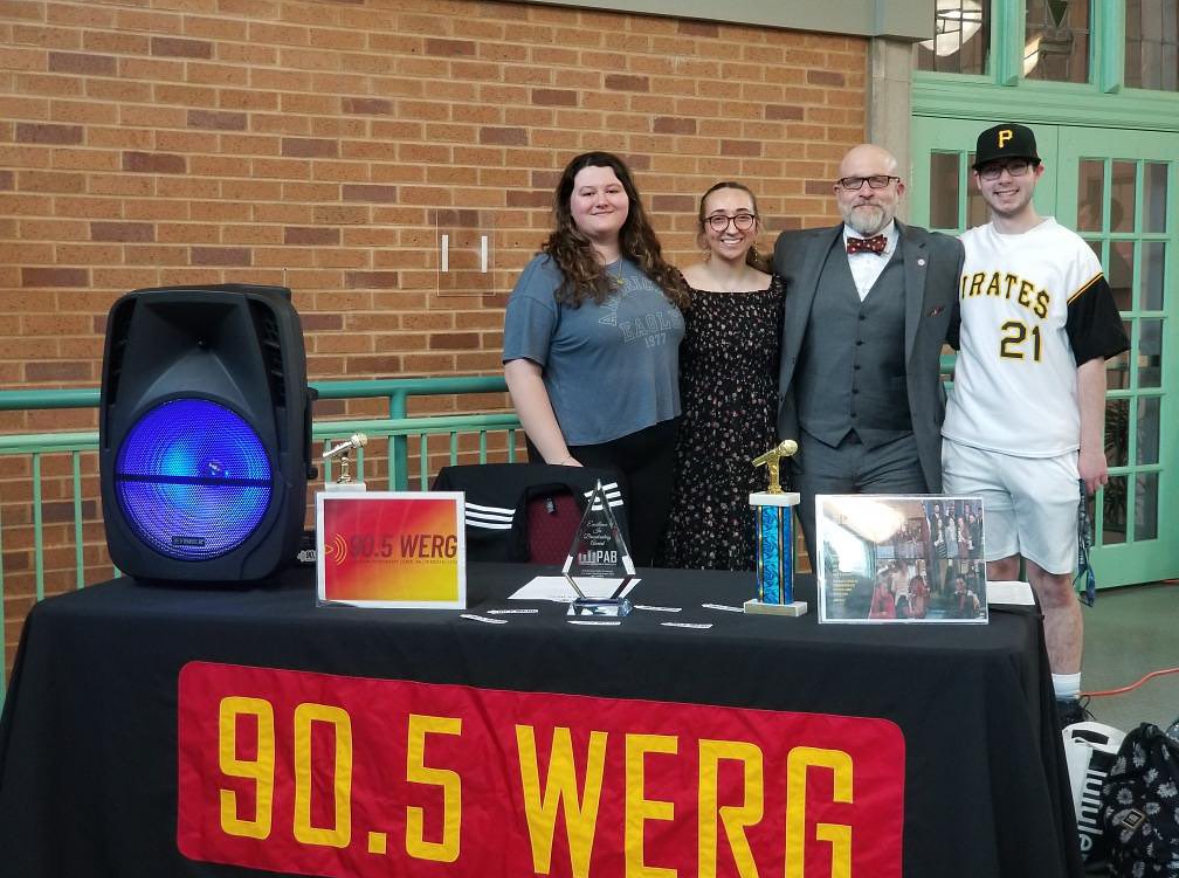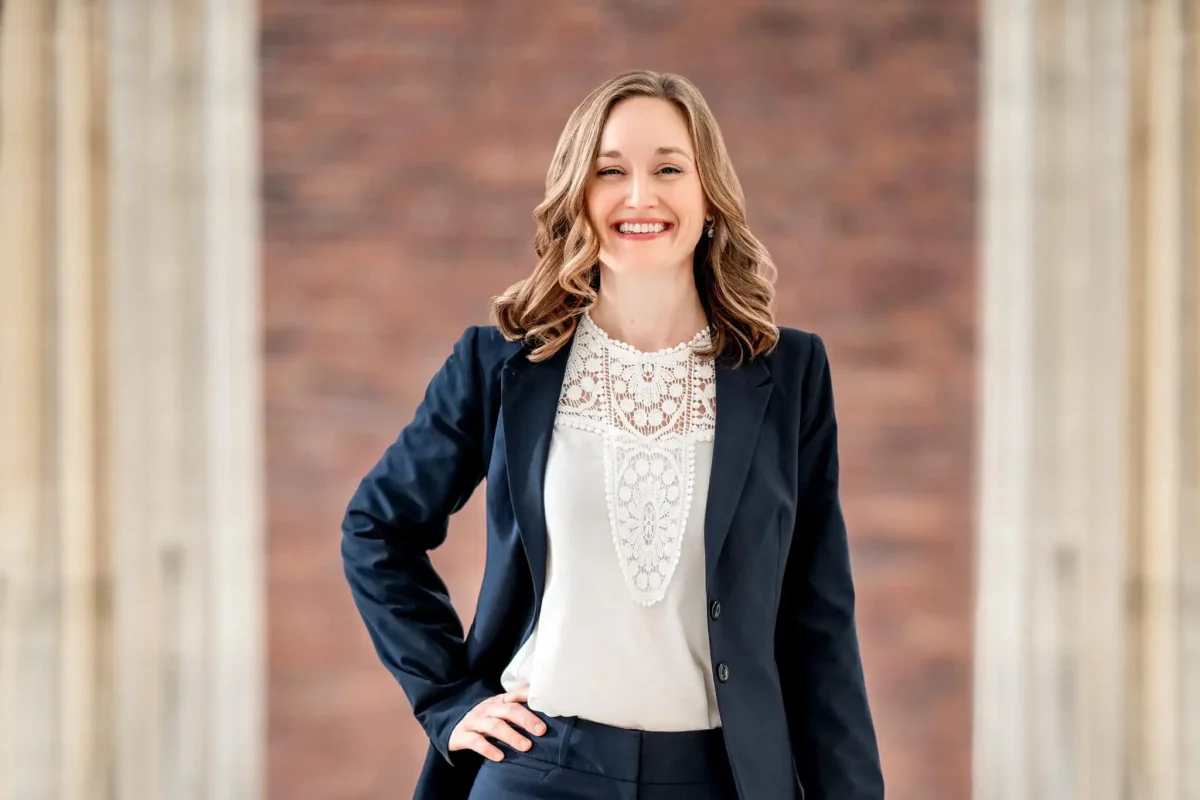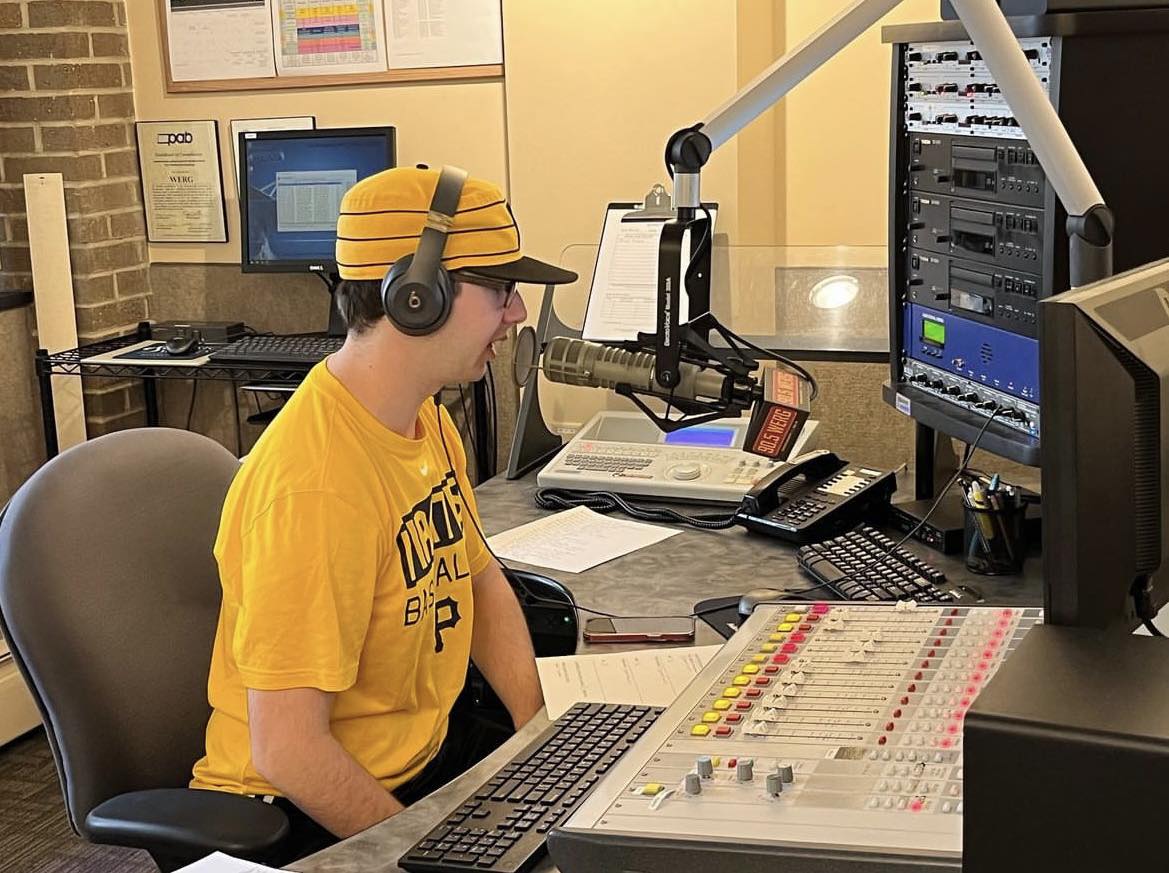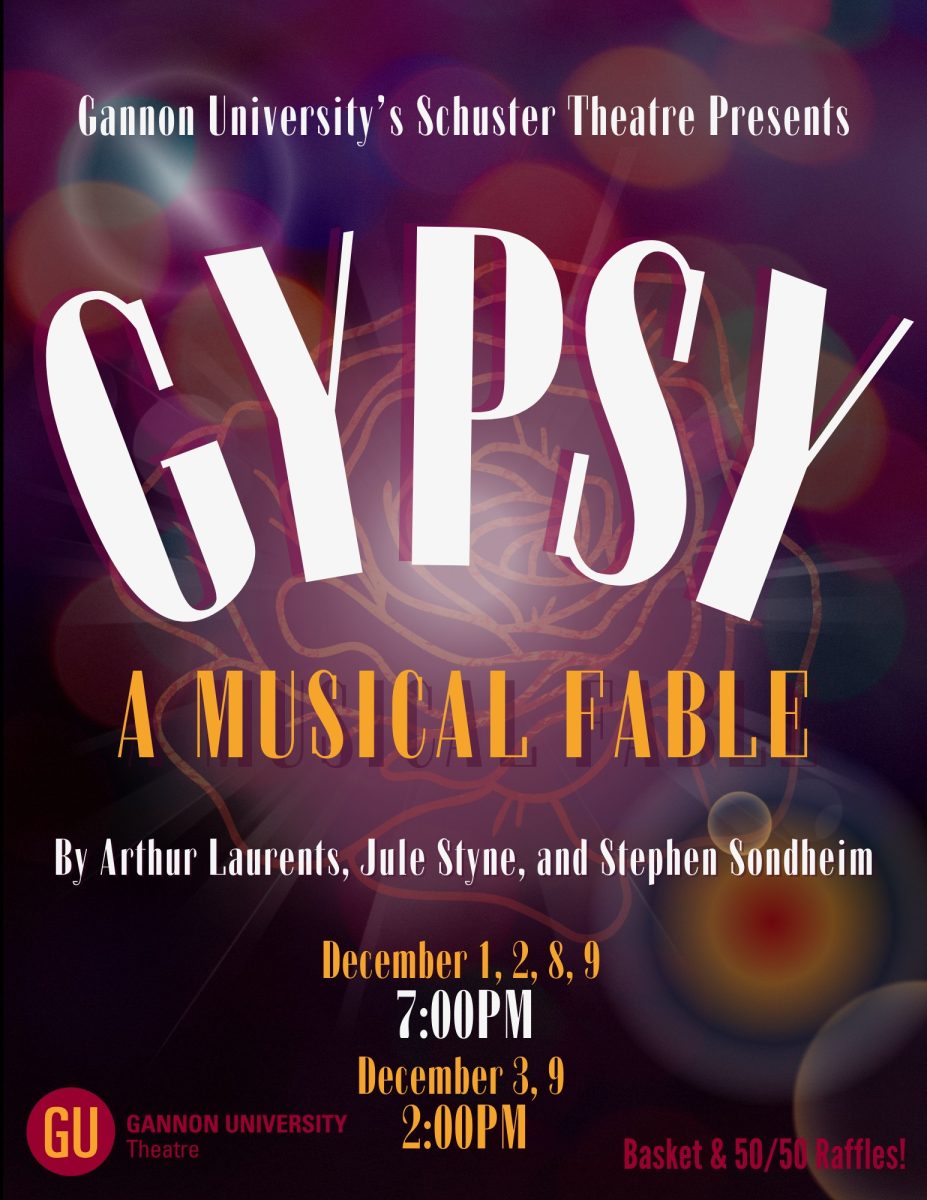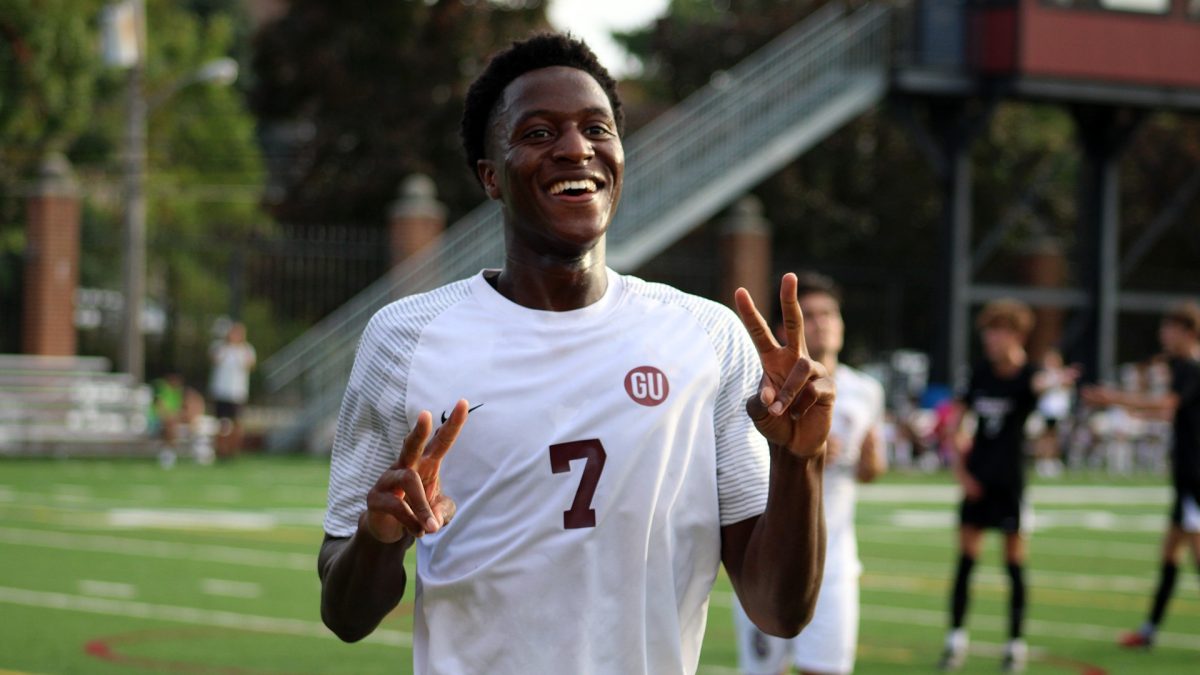Laura Rutland has had the opportunity to touch many people’s lives as a Gannon University professor and chair of the English Department.
Rutland came to Gannon in the fall of 2004 as an assistant professor, meant to teach British romanticism in literature. Since then she has become an associate professor, and in 2015 she was appointed chair of the English department.
In 2004, when Rutland first arrived in Erie, it was one of her first times this far north. Rutland grew up in the South and lived there for the first 47 years of her life.
Moving to the North was an adjustment for her, Rutland said. In addition to leaving behind her elderly parents, the first winter was a challenge, but she’s been mostly happy. She said she really thinks that she fits in well in Erie, in terms of the people and the ideas.
And despite any worries she had, the opportunity at Gannon was something she could not pass up, she said. There was no way of knowing when another position would come up anywhere.
“There aren’t many academic jobs in English,” Rutland said.
She came to Erie for the interview. It went well, Rutland said, but she got snowed in. It was a sign of the weather to come, she said.
The interview took place in a third-floor conference room in Palumbo Academic Center, Penelope Smith, an assistant professor of English, said. Smith recalled that during the interview, Rutland was charming, lovely and very smart.
The panel interviewing her ended up offering her a position at Gannon. She thought it was a great opportunity, and she took it.
Ending up in a university like Gannon wasn’t too surprising. Rutland had always been in an educational setting, she said. She wasn’t always sure about teaching.
“I decided late in the journey,” she said.
She was working on other things first. Rutland started graduate school in Georgia unsure of what she was going to concentrate in while working at a university library. Ultimately, she focused her master’s degree in British literature although she had spent her undergraduate education focusing on American literature.
While working at several university libraries for 12 years, Rutland found herself starting to read books by Charles Dickens before moving into George Elliot. It went on from there.
Her love of British literature extended on to her doctoral studies which she started working on in the mid-‘90s at the University of Tennessee. She concentrated on 19th century British romantic and Victorian era literature. She also had a secondary focus on literary theory and rhetoric.
Working in a library also helped her decide to start teaching, she said.
“I found out I really liked to teach,” she said, “and students as well.”
She said education became a great outlet for many things that she enjoyed.
“I really love literature, talking about it and sharing it,” Rutland said. “I wanted to be in the world of ideas.”
Teaching has led to some of her favorite memories at Gannon. There are certain classes, she said, that end up being really successful with all the students meshing together well. This happens at any level, too.
The students, for whatever reason, get super engaged in the class. It has nothing to do with the teacher or with the material, she said.
“There’s a magic to it,” she said.
Gannon is the third institution she has been affiliated with and taught at and it has been her favorite.
“Overall, people treat each other well,” Rutland said. “It’s not as cut throat. [Gannon] is somewhere people care about each other.”
This sentiment is reflected in her teaching, as well. Many students have noticed her compassion for them.
One student, senior English major Sabrina Yassem, found the right major for her with Rutland’s help.
During her first year at Gannon, Yassem was undeclared in her major. She had already began thinking about English before she came to Rutland, but she was still unsure. A lot of people, including faculty, told her it was a waste of time and money.
Meeting with Rutland the first time showed her she could do a lot of things with an English degree.
“She told me different career paths I could have,” Yassem said. “She was very supportive and willing to help me.”
Another senior English major, Julia Fulton said she felt similarly after taking a class with Rutland titled Frankenstein at 200. Fulton said that the course provided a lot of opportunities to read some science fiction pieces and the in-class discussions ended up very thought provoking.
“We even had some international students, which gave it a little extra flavor,” Fulton said.
Yassem felt the same way about the classes taught by Rutland that she has taken. Frankenstein at 200 was even her favorite Rutland class, she said.
“It was an interesting, fun and unique literature class,” Yassem said.
Even beyond Frankenstein at 200, the classes have always been educational and enjoyable she said.
“There have been good days and bad days,” Yassem said, “but where isn’t there.”
And Rutland always brings new things into the classroom that add to the class, she said. Whatever it may be.
Malorie Patterson, an English teaching assistant and graduate student at Gannon, said she found Rutland’s classes to be just as educational, as well as fair. This semester she’s enrolled in her first Rutland course, titled Studies in Victoria Literature.
“So far, the class isn’t bad,” Patterson said. “She is definitely knowledgeable about Victorian England and the various authors and issues of the time.”
Rutland is more than just an educator. She is also the Chair of the English Department. She took the position after Smith, who has a doctorate in linguistics, gave it up. Smith had been the chair for approximately five years, from 2008 to 2014.
Smith has since retired but still teaches several classes every semester at Gannon as an adjunct professor. This has allowed her to see how Rutland has taken to the position as the chair and to watch it change.
“I think she’s done a good job as chair in light of the notable changes that occurred since I was chair,” Smith said.
These changes include enrollment rates, funding, and staff.
“There have been changes because she’s very fair minded,” she said, referring to the way things are run.
There has also been a change with the two having different strong points. Rutland’s strong point isn’t filling out detailed points and paperwork, Smith said. She’s excellent at encouraging the department to envision the future and how it can change and adapt with that.
That encouragement to face the future is something the department needs, some students said.
“I think the humanities needs to work doubly hard to stay relevant and that can be difficult when the chair is as passionate about what I may consider ‘outdated’ classes as Dr. Rutland seems to be,” Patterson said.
Yassem saw similar issues with the program and said she would like to see the English department reach out and work with other areas and departments.
“I kind of wish the department would branch out more and get involved with internships and more connected on campus with more student-led advocating,” Yassem said.
This is something Rutland sees as an area for improvement as well.
Rutland said she has ideas going forward to change and evolve with the times. She has said she has ideas about getting involved with high schools. She also might try to integrate internships sooner into the curriculum.
Decreasing enrollments in the program has become her biggest struggle, she said.
In 2008, there were 50 English majors and a literary theory class had 27 students in it at one point, she said. Ten years later, the English department has approximately 17 students, including five in the graduate program.
Rutland said she views this as a change in higher education. Since the stock market crash in 2008, there was a cultural change with what people came to school for. And this caused the humanities to suffer.
There is no clear career path set before an English major like there is for an occupational therapy major, she said.
“You don’t get an English degree to become an Englisher,” Rutland said, quoting Dean Linda Fleming.
That is why Rutland has thoughts on getting involved with high schools. She said she wants to show them the opportunities with an English degree even before the student starts college.
It is in her ideas like this that her passion for the department can be seen, Patterson said.
“I have been told that she will go to bat for the department and I know she fought hard when the T.A. program was in jeopardy,” Patterson said. “Although the T.A. program is no more, I don’t think that reflects negatively on Dr. Rutland’s efforts to save the program.”
Still, she has played other roles in people’s lives. For some, she has become a friend. Rutland has proven to be very warm and has a good sense of humor, Smith said. She’s very sweet and very kind.
“Over the years we developed a friendship,” Smith said. “I look to her for personal and professional support.”
Smith said she had “nothing but good stuff” to say about Rutland.
Many other members of the Gannon community feel similarly about the subject.
“My first thoughts of Dr. Rutland were that she was kind,” Patterson said. “Even though I had attended Gannon as an undergrad, I had never met or talked to her before. The first time I heard her voice was in a voicemail she left for me saying I had been accepted into the TA program at Gannon.”
Since then, she has taken a class with Rutland and has gotten to know her better.
“I wouldn’t purposefully take another class with Dr. Rutland,” Patterson said, “but only because she teaches more literature-based courses and I’m more interested in composition and rhetoric.”
Rutland primarily teaches literature classes. It was in one of these classes where Fulton first got to know Rutland.
“When I first met Dr. Rutland, I thought she was a very wise woman and quite knowledgeable in literature,” Fulton said. “It was a little intimidating at first but once you get to know her as a professor, she is one of the most understanding and compassionate professors I’ve had.”
Within these literature classes, she offers an interesting perspective, Yassem said. For Frankenstein at 200, students were encouraged to look at the book from a more scientific or philosophical perspective.
“I guess I learned that when you analyze literature, you don’t have to take a literature approach,” Yassem said.
It didn’t just have to be English stuff in that class.
“She really encourages thinking outside the box,” Yassem said.
It is things like that, Yassem said, that are important. Rutland is unlike anyone else, she said.
One day, Yassem had been talking with Rutland about her summer internship at the end of last semester and one of them had made a joke. It was an English joke about grammar. She couldn’t remember who made it, but just that they had laughed so hard.
In that moment, Yassem said she knew she had found someone to have these kinds of jokes with and that’s something everyone needs. As she approaches graduation, she has grown a lot and has Rutland to thank for that.
“I would say that the English Department as a whole, including Rutland, has made an impact on me,” Yassem said. “I wouldn’t have found my love of teaching and traveling without the department and Rutland or my ability to think outside the box to solve critical problems. Rutland has helped to make me into a well-rounded and thoughtful human being.”
ALEXA ROGERS





